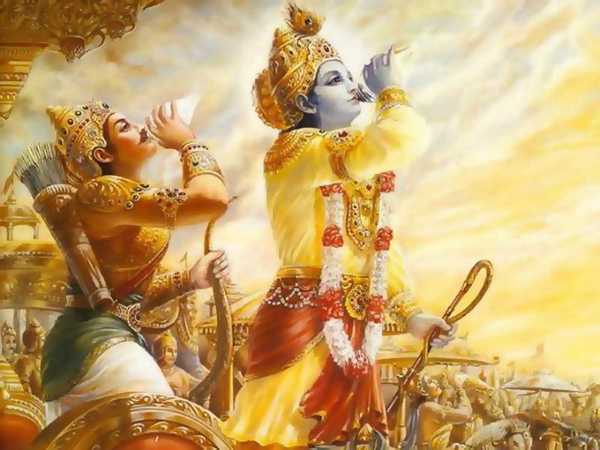Chapter 74

“Damayanti said, ‘O Kesini, go thou and learn who that charioteer is thatsitteth by the car, unsightly and possessed of short arms. O blessed one,O faultless one, approaching him, cautiously and with suit words, makethou the usual inquiries of courtesy and learn all particulars truly.Having regard to the feeling of satisfaction my mind experienceth, andthe delight my heart feeleth, I am greatly afraid this one is king Nalahimself. And, O faultless one, having inquired after his welfare, thoushalt speak unto him the words of Parnada. And, O beauteous one,understand the reply he may make thereto.’ Thus instructed, that femalemessenger, going cautiously, while the blessed Damayanti watched from theterrace, addressed Vahuka in these words, ‘O foremost of men, thou artwelcome. I wish thee happiness. O bull among men, hear now the words ofDamayanti. When did ye all set out, and with what object have ye comehither. Tell us truly, for the princess of Vidarbha wisheth to hear it.’Thus addressed, Vahuka answered, the illustrious king of Kosala had heardfrom a Brahmana that a second Swayamvara of Damayanti would take place.And hearing it, he hath come here, by the help of excellent steeds fleetas the wind and capable of going a hundred yojanas. I am his charioteer.Kesini then asked, ‘Whence doth the third among you come, and whose (son)is he? And whose son art thou, and how hast thou come to do this work?’Thus questioned, Vahuka replied, ‘He (of whom thou inquirest) was thecharioteer of the virtuous Nala, and known to all by the name ofVarshneya. After Nala had, O beauteous one, left his kingdom, he came tothe son of Bhangasura. I am skilled in horse-lore, and have, therefore,been appointed as charioteer. Indeed, king Rituparna hath himself chosenme as his charioteer and cook.’ At this Kesini rejoined, ‘PerhapsVarshneya knoweth where king Nala hath gone, and O Vahuka, he may alsohave spoken to thee (about his master).’ Vahuka then said, ‘Havingbrought hither the children of Nala of excellent deeds, Varshneya wentaway whither he listed: He doth not know where Naishadha is. Nor, Oillustrious one, doth anybody else know of Nala’s whereabouts; for theking (in calamity) wandereth over the world in disguise and despoiled of(his native) beauty. Nala’s self only knoweth Nala. Nala neverdiscovereth his marks of identity anywhere.’ Thus addressed, Kesinireturned, ‘The Brahmana that had before this gone to Ayodhya, hadrepeatedly said these words suitable to female lips, ‘O beloved gambler,where hast thou gone cutting off half my piece of cloth, and desertingme, his dear and devoted wife asleep in the woods? And she herself, ascommanded by him, waiteth expecting him clad in half a garment andburning day and night in grief. O king, O hero, do thou relent towardsher that weepeth ceaselessly for that calamity and do thou give her ananswer. O illustrious one, do thou speak the words agreeable to her forthe blameless one panteth to hear them. Hearing these words of theBrahmana thou didst formerly give a reply! The princess of Vidarbha againwisheth to hear the words thou didst then say.'”
“Vrihadaswa continued, ‘O son of the Kuru race, hearing these words ofKesini, Nala’s heart was pained, and his eyes filled with tears. Andrepressing his sorrow, the king who was burning in grief, said againthese words, in accents choked with tears: ‘Chaste women, thoughovertaken by calamity, yet protect themselves, and thereby secure heaven.Women that are chaste, deserted by their lords, never become angry, butcontinue to live, cased in virtue’s mail. Deserted by one fallen intocalamity, bereft of sense, and despoiled of bliss, it behoveth her not tobe angry. A virtuous lady should not be angry with one that was deprivedby birds of his garment while striving to procure sustenance and who isburning in misery. Whether treated well or ill she would never be angry,seeing her husband in that plight, despoiled of his kingdom, bereft ofprosperity, oppressed with hunger, and overwhelmed with calamity.’ And, OBharata, while speaking thus, Nala oppressed with grief, could notrestrain his tears, but began to weep. And thereupon Kesini went back toDamayanti, and acquainted her with everything about that conversation aswell as that outburst of grief.”




